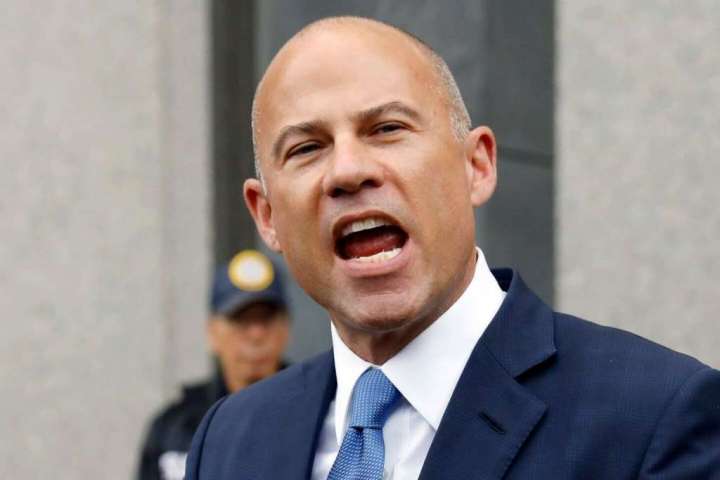Attorney Michael Avenatti was sentenced Thursday to four years in prison on charges related to taking $300,000 from his former client Stormy Daniels, the adult-film actress who accused Donald Trump of pressuring her into silence about an alleged 2008 sexual encounter.
Avenatti sentenced to 4 years in prison for defrauding Stormy Daniels

Avenatti is serving a 30-month prison sentence in the Nike case. His attorneys said Thursday that 30 months of the sentence in the Daniels case will run consecutively to that punishment, meaning that Avenatti’s total combined sentence for both cases is 60 months, or five years.
He plans to appeal and is currently in federal prison, his attorney said.
Avenatti ascended to national prominence representing Daniels, whose legal name is Stephanie Clifford, in her battle against Trump. A ubiquitous presence on cable news and social media, Avenatti frequently denounced Trump’s behavior and briefly explored a 2020 presidential bid of his own before ultimately deciding against it. His arrest and indictment by federal prosecutors in March 2019 set into motion a rapid and stunning fall from grace.
In 2018, Avenatti filed two lawsuits against Trump on Daniels’s behalf. One was a defamation suit that Daniels says Avenatti filed against her wishes. The lawsuit was dismissed by a federal judge.
The other suit was an attempt to invalidate the nondisclosure agreement Daniels signed when she accepted $130,000 in hush money from Michael Cohen, Trump’s former lawyer, in exchange for her silence about an alleged sexual encounter with Trump years earlier. Trump has denied the affair. The hush money was paid by Cohen during the 2016 presidential campaign, and Cohen later pleaded guilty to campaign finance fraud in connection to it.
That lawsuit was dismissed as well, with a federal judge citing a decision by Trump and Cohen not to enforce the agreement.
Daniels went on to write a memoir, “Full Disclosure,” for which she was to receive an $800,000 advance. But according to federal prosecutors, Avenatti stole $300,000 of that amount by faking Daniels’s signature on a form that rerouted the wire transfers to an account he controlled.
Avenatti then spent months brushing off Daniels’s questions about the missing installments — leading her to believe that the publishing company was failing to pay her, when Avenatti was in fact siphoning payments of her book-deal advance.
After representing himself for much of the trial, Avenatti was found guilty on counts of wire fraud and aggravated identity theft in U.S. District Court in Manhattan on Feb. 4. The jury deliberated for about two days.
In an interview with Inside Edition that month, Daniels said she was “very happy the jury made the right decision.”
“They looked at the facts, they put their personal feelings about who I am and what I do aside,” she said.
Avenatti argued that he was entitled to the money from the book advance. His claims were contradicted, however, by an extensive WhatsApp message history with Daniels that included repeated assurances that he was working hard to get the publisher to satisfy the terms of her contract. As he was offering daily excuses to Daniels, he was concealing that he had taken payments for himself.
Avenatti “did just the opposite” of performing a lawyer’s duty to a client in his representation of Daniels and “instead used his law degree as a license to steal,” Manhattan U.S. Attorney Damian Williams said in a statement at the time of the trial.
The trial was at times a spectacle. A team of federal public defenders initially had been set to try Avenatti’s case, but they wound up serving as his advisers after a judge granted Avenatti’s motion to act as his own lawyer.
In his summation, Avenatti launched into personal anecdotes that were interrupted by objections from the prosecution, which the judge granted. In an apparent bid to tarnish his former client’s credibility, Avenatti also used his cross-examination of Daniels to grill her on her belief in the supernatural.






